Abstract
Forrest, W. W. (University of Adelaide, Adelaide, South Australia), D. J. Walker, and M. F. Hopgood. Enthalpy changes associated with the lactic fermentation of glucose. J. Bacteriol. 82:685–690. 1961.—The heat produced during the fermentation of glucose by growing cultures and by washed cells of Streptococcus faecalis has been measured by direct calorimetry. The heat production of growing cultures gives a direct measure of the rate and amount of growth which has occurred. The enthalpy change when glucose is fermented essentially to lactic acid at 37 C is −29.1 cal per mmole of glucose, which is in agreement with the calculated value for the mixture of products formed.
Full text
PDF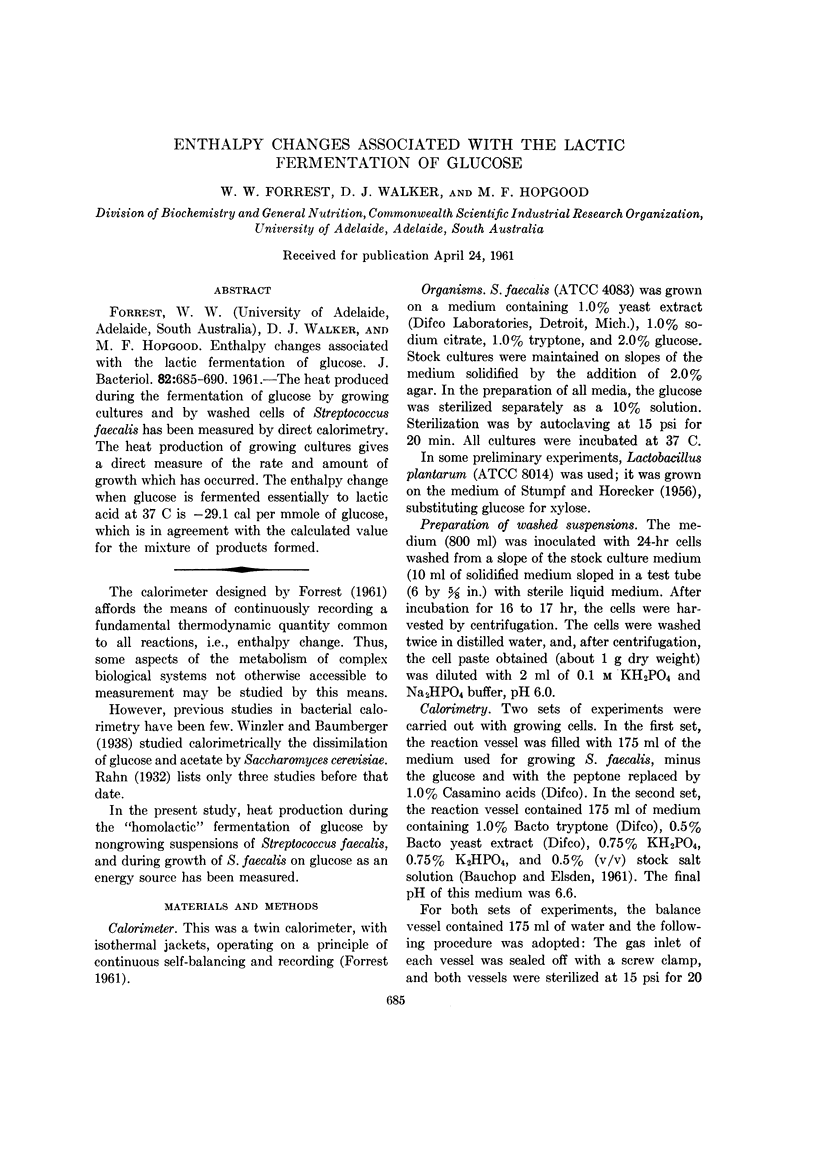
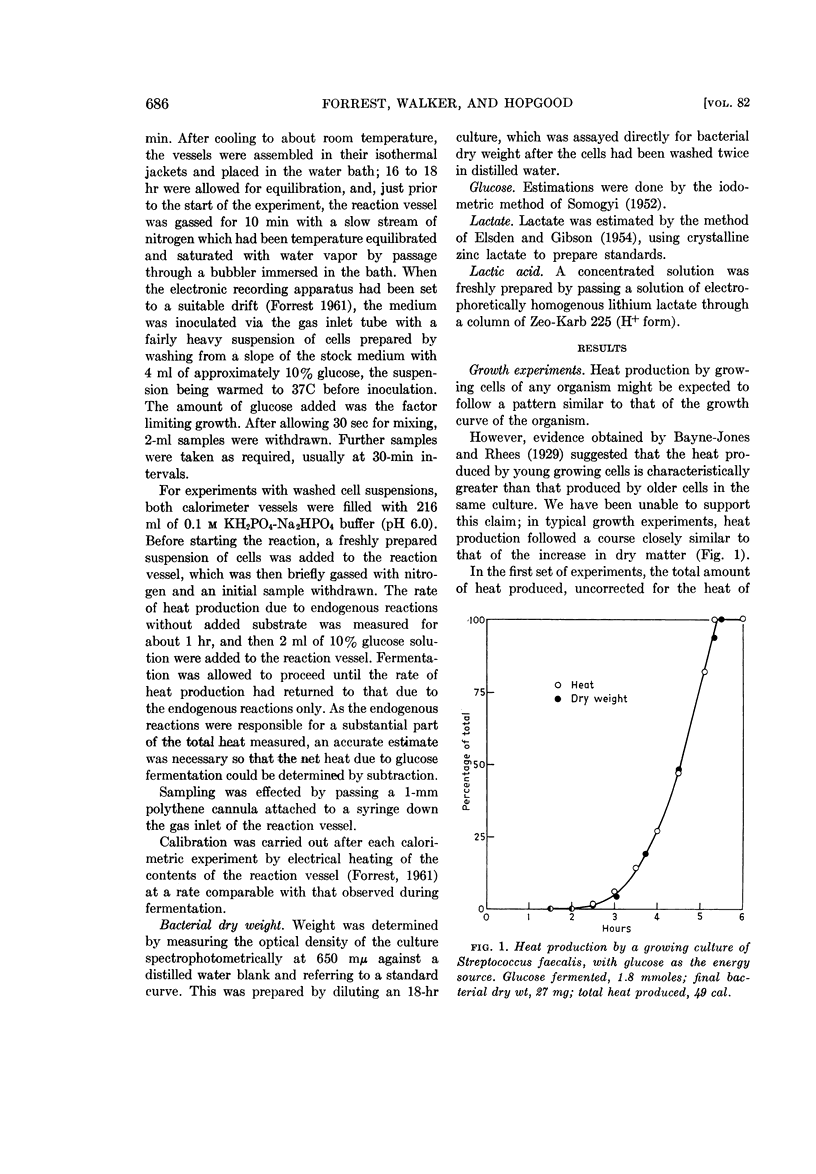
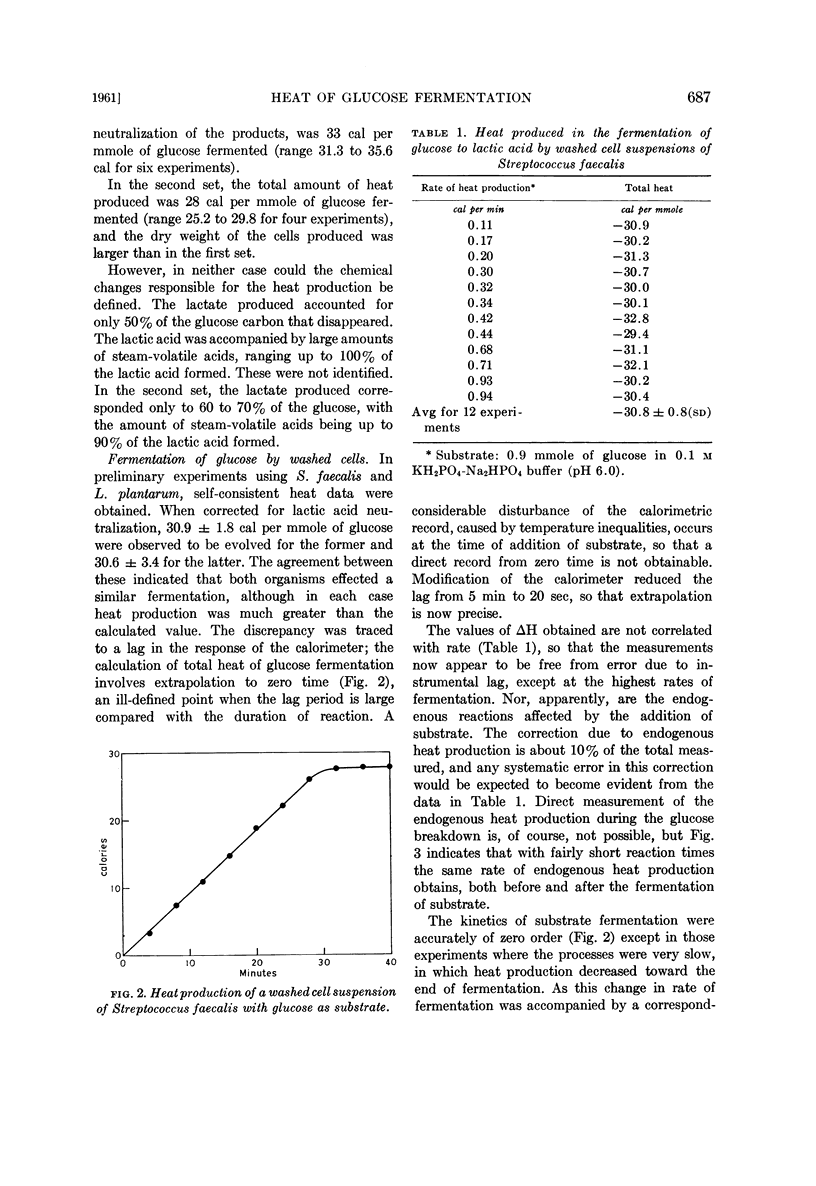
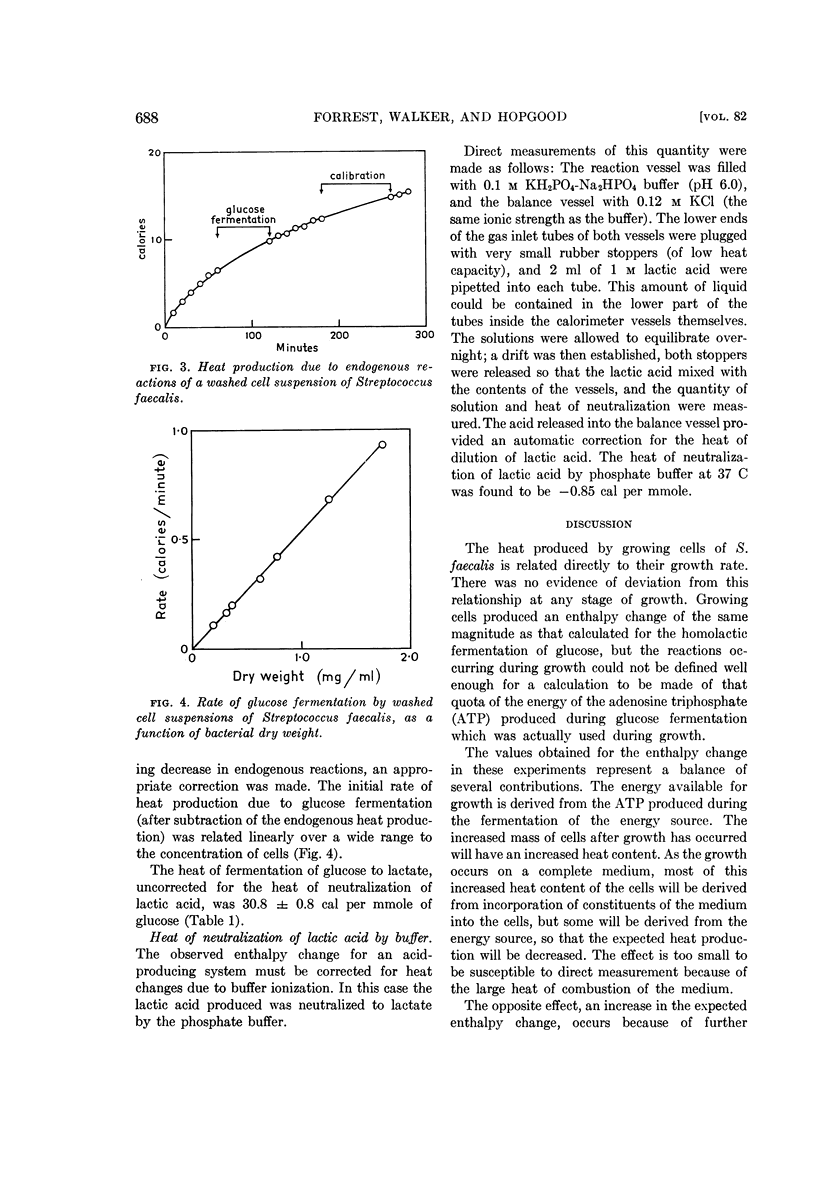
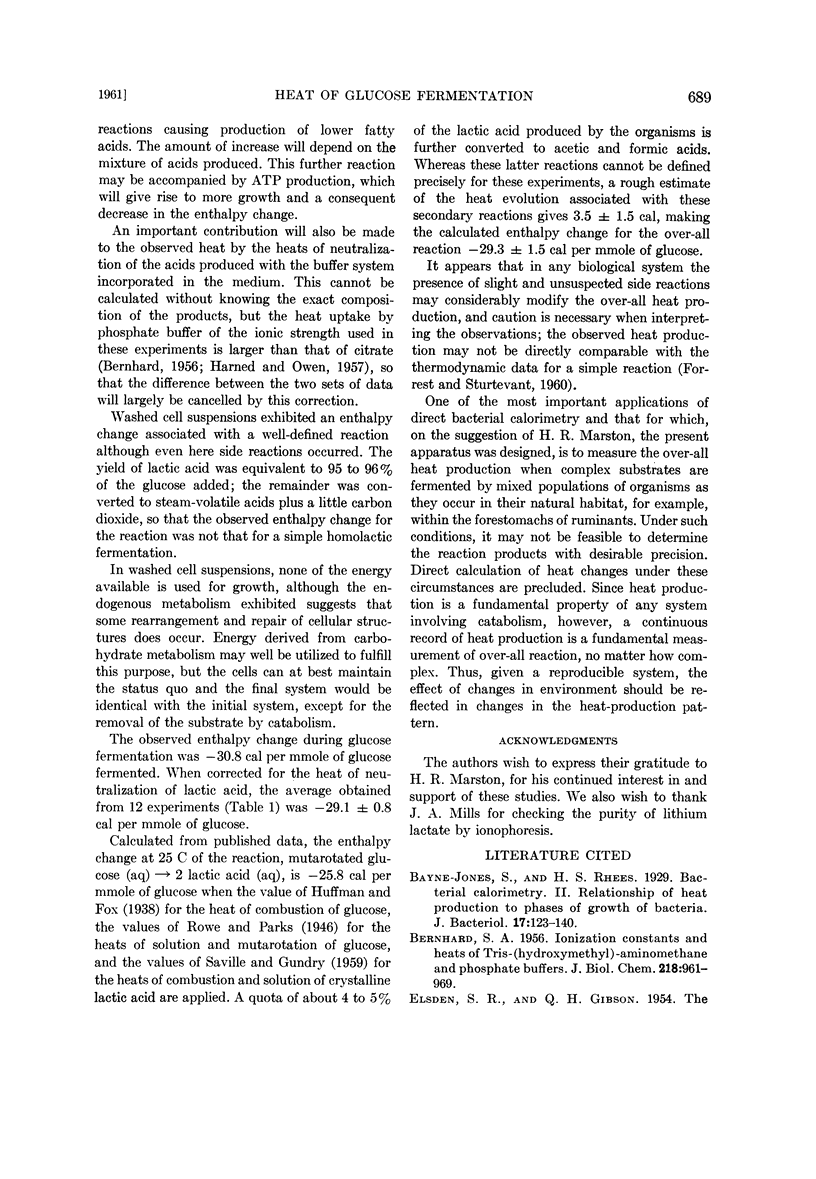
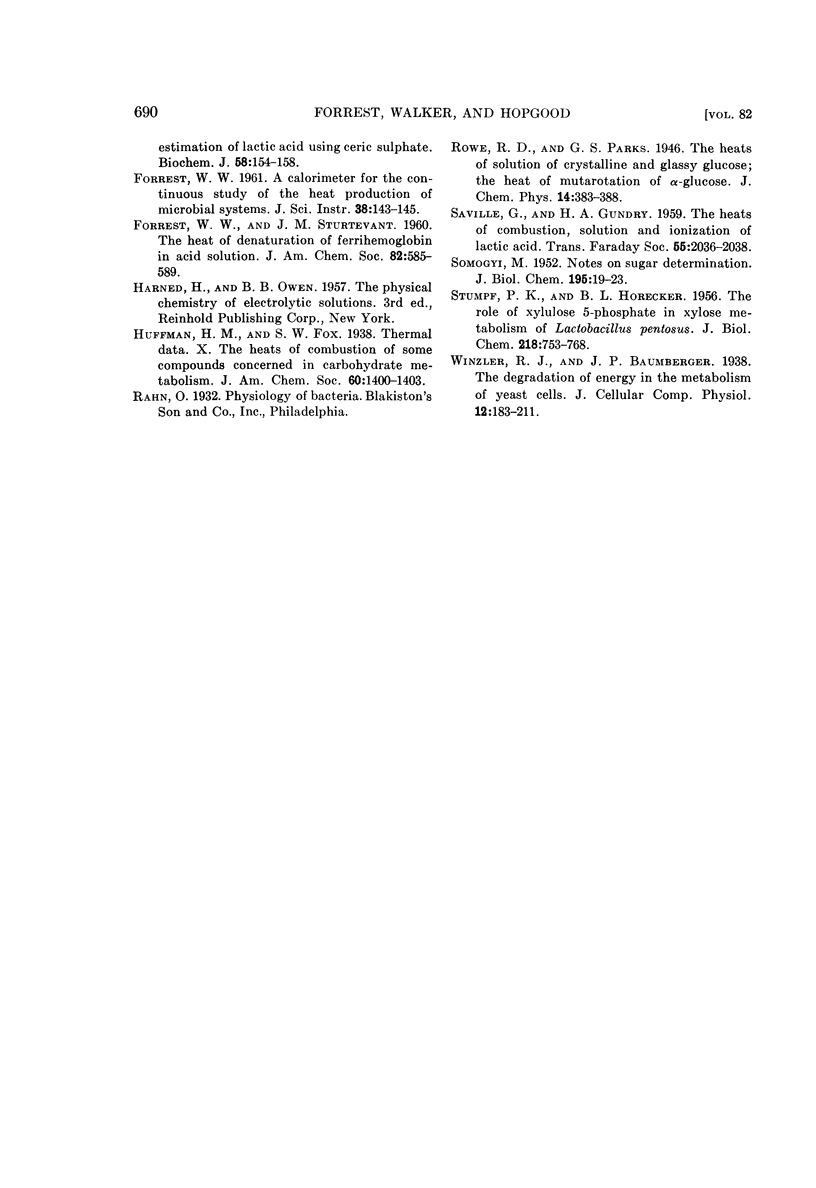
Selected References
These references are in PubMed. This may not be the complete list of references from this article.
- BERNHARD S. A. Ionization constants and heats of tris(hydroxymethyl)aminomethane and phosphate buffers. J Biol Chem. 1956 Feb;218(2):961–969. [PubMed] [Google Scholar]
- Bayne-Jones S., Rhees H. S. BACTERIAL CALORIMETRY II. RELATIONSHIP OF HEAT PRODUCTION TO PHASES OF GROWTH OF BACTERIA. J Bacteriol. 1929 Feb;17(2):123–140. doi: 10.1128/jb.17.2.123-140.1929. [DOI] [PMC free article] [PubMed] [Google Scholar]
- ELSDEN S. R., GIBSON Q. H. The estimation of lactic acid using ceric sulphate. Biochem J. 1954 Sep;58(1):154–158. doi: 10.1042/bj0580154. [DOI] [PMC free article] [PubMed] [Google Scholar]
- SMOGYI M. Notes on sugar determination. J Biol Chem. 1952 Mar;195(1):19–23. [PubMed] [Google Scholar]
- STUMPF P. K., HORECKER B. L. The role of xylulose 5-phosphate in xylose metabolism of Lactobacillus pentosus. J Biol Chem. 1956 Feb;218(2):753–768. [PubMed] [Google Scholar]



